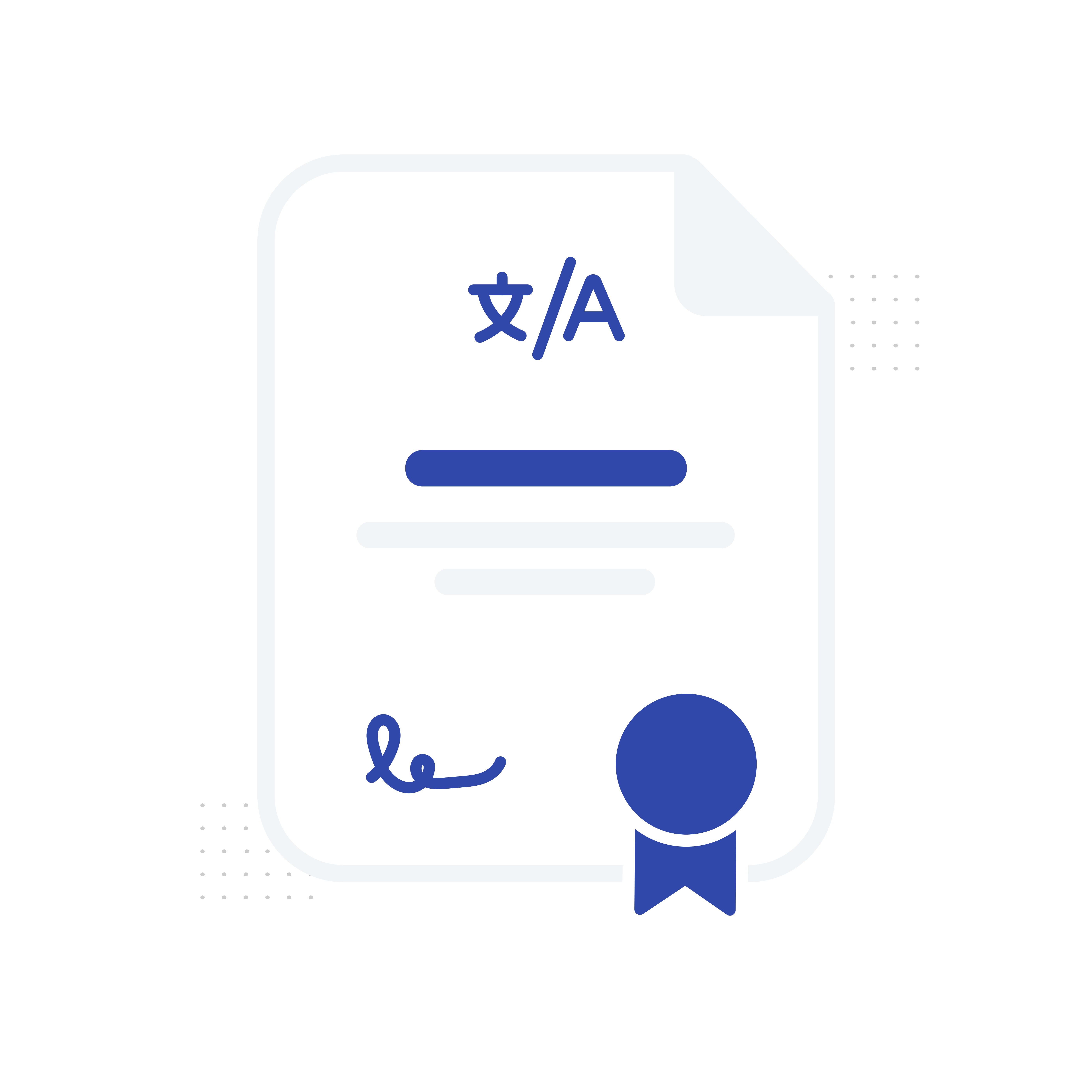Introduction
As the immigration landscape continues to evolve, attorneys play a pivotal role in guiding individuals through the intricate process of relocating to the United States. The importance of accurate academic evaluations for foreign diplomas, especially those from Germany, cannot be overstated.
In this blog post, we'll explore how immigration attorneys can navigate these challenges and provide invaluable assistance to their clients by utilizing MotaWord's academic evaluation services for German diplomas. Discover how this collaboration can streamline the immigration process, ensuring accuracy, compliance, and success for both attorneys and their clients.
Understanding German Degrees
The German higher education system, known for its quality and diversity, offers a broad spectrum of educational opportunities. Accreditation of higher education institutions in Germany is rigorously regulated to ensure quality and consistency and is overseen by the German Council of Science and Humanities (Wissenschaftsrat). Accreditation is crucial for institutions to maintain their academic reputation and access government funding. Operating within a federal-state framework, Germany's higher education system is governed by the Federal Ministry of Education and Research (BMBF) at the federal level, which focuses on funding, national policies, and international cooperation. Simultaneously, each of the 16 federal states has its Ministry of Education or Ministry of Science, responsible for overseeing universities and colleges within their respective regions.

Germany boasts various types of higher education institutions, including:
- Universities (Universitäten): These institutions offer a wide range of academic disciplines and are known for their strong research focus. Students can pursue bachelor's, master's, and doctoral degrees at universities.
- Universities of Applied Sciences (Fachhochschulen or FH): FH schools prioritize practical, career-oriented education. They often collaborate with industry partners and offer programs in engineering, business, and other applied fields. FH degrees are highly regarded in Germany for their emphasis on real-world skills.
- Technical Universities (Technische Universitäten or TU): TUs are specialized in technical and engineering disciplines, combining the academic rigor of universities with a strong practical orientation.
Germany offers a vibrant postgraduate landscape, with a strong emphasis on research. Doctoral programs (Ph.D.) are available at universities, providing opportunities for in-depth research and academic advancement. Additionally, there are numerous Master's programs, both in English and German, covering a wide range of subjects.

Required Documents for German Degree Assessment
DOWNLOAD NOWGermany has recently witnessed substantial changes in its education system. Firstly, it adopted the Bologna system in 1999, restructuring higher education into a three-tier system with credit-based learning and internationalization, making German degrees more globally compatible. Additionally, the gradual removal of the 13th year of secondary school education has occurred. This change has implications for U.S. admissions officers and credential evaluators who must now adapt transfer credit policies, graduate admissions criteria, and degree comparability standards to align with Germany's evolving educational landscape, showcasing the dynamic nature of the German education system's impact on international assessment and admission procedures.
How to Evaluate German Degrees
Evaluating German degrees requires a comprehensive approach that considers various facets of the country's higher education system. While Master's and Doctoral degrees often align well with their US equivalents, assessing Bachelor's degrees can be more intricate. The duration and content of these programs play a significant role in determining their equivalence. Furthermore, German dual-track vocational programs add another layer of complexity to the evaluation process.
A key factor to consider in the evaluation of German Bachelor degrees is the type of educational institution. Bachelor degrees from Universities of Applied Sciences (Fachhochschulen or FH) are only considered equivalent to US Bachelor’s degrees if the program duration is four years or longer.
The phasing out of the 13th year of secondary school education is another factor in the evaluation process. Keeping abreast of the latest developments and evolving equivalency standards is crucial, highlighting the need for reliable education evaluators like MotaWord, who can guarantee that an equivalency is aligned with the latest standards and supported with research and well-reasoned analysis.
Academic Evaluation Services?
USCIS Requirements for German Degrees
In the context of USCIS requirements for German degrees, specific considerations should be taken into account. Firstly, all academic documents in German, including diplomas and transcripts, should be accurately translated into English by certified translatorsl. USCIS also considers the accreditation status of the German educational institution, giving preference to those officially recognized in Germany. Providing proof of authenticity, comprehensive documentation, and ensuring alignment with the visa category being applied for are additional expectations set by USCIS. Collaboration with MotaWord, a recognized academic evaluation services provider adds precision and credibility to your practice, leveraging linguistic and academic knowledge and coupling it with your immigration expertise.
Role of Immigration Lawyers in German Academic Evaluations
Immigration lawyers play a crucial role in facilitating the academic evaluation process for foreign nationals seeking to have their German diplomas assessed for USCIS visa petitions. Their legal expertise ensures compliance with U.S. immigration laws and regulations while coordinating with specialized services like MotaWord for certified translation and academic evaluation. Lawyers work diligently to translate German documents into English accurately, collaborate with MotaWord's expert evaluators to determine degree equivalency, and meticulously review applications for precision and compliance. They compile comprehensive visa application packages, resolve any issues that may arise during the evaluation process with MotaWord's assistance, and provide tailored solutions to meet each client's unique circumstances. Immigration lawyers act as advocates, leveraging MotaWord's certified translation and academic evaluation services to ensure a smooth and successful immigration application process for their clients.
Conclusion
Germany's higher education system is known for its structured and diverse academic opportunities, but the translation and evaluation of foreign qualifications can pose complexities due to differences in degree structures and program equivalencies. MotaWord's academic evaluation services for German diplomas play a crucial role in simplifying this process, ensuring precise assessments and facilitating a smoother transition for individuals seeking to navigate the intricacies of the U.S. immigration system.
/f/84976/2006x2006/3f3d709087/the-uscis-roadmap_-navigating-german-diplomas-for-visa-approval-hero.png)




